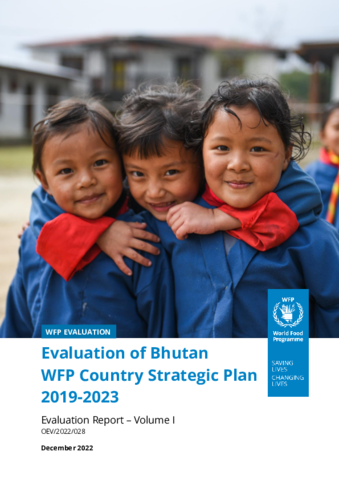
It covered activities implemented from 2019-July 2022, as well as the CSP design period during the T-ICSP in 2018. It examined the relevance of WFP’s strategic positioning, its contribution to outcomes, including on cross-cutting priorities, its efficiency and the factors explaining performance.
Overall, the evaluation found that WFP assistance under the CSP showed good performance in terms of achieving intended changes at outcome level. While school feeding is still seen as WFP’s main contribution, WFP successfully responded to the request for providing support to agriculture value chains when this was raised as a national priority. However, the CSP’s engagement in disaster risk management was not as impactful as hoped.
The evaluation found good collaboration between WFP and other United Nations agencies, though with most activities unilaterally implemented. Channelling WFP assistance through the Government and ensuring economic procurement was cost efficient. However, resource mobilization challenges remain, particularly as Bhutan approaches middle-income status by the end of 2023.
